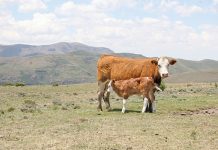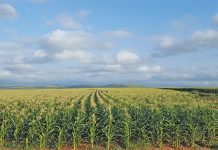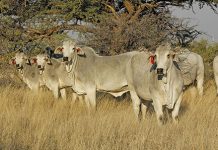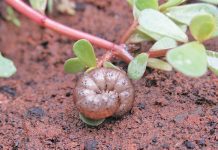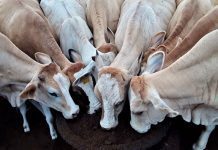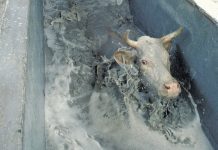Bicarbonates: the silent crop killer
Irrigation water high in bicarbonates can wreak havoc on crops, causing soil compaction, blocking plants’ nutrient uptake and eventually killing them. Identifying and treating bicarbonates isn’t easy, but there are proven strategies for farmers.
Best practices for grain farmers
Maize and wheat are the two most important staple foods in South Africa. With stable consumer demand of these grains and the continuous development of production techniques, Lindi Botha reports on how producers should approach such farming ventures.
The effective monitoring of body temperature in cattle
Accurate monitoring of cattle’s body temperatures is crucial for ensuring optimal herd health and productivity. Octavia Avesca Spandiel spoke to animal health experts for tips on precise temperature readings, early disease detection, and maintaining biosecurity in a herd.
How irrigation can help small-scale farmers
Irrigation has resulted in significant crop yield improvement across the globe. In some regions, irrigation is essential for successful crop production; however, it remains out of reach for many small-scale farmers.
Financial management of a farm: the basics of budgeting
Cobus du Plessis explores the fundamentals of budgeting for farm management, explaining its importance, the different types of budgets, and key concepts like fixed and variable costs.
Livestock production strategies for formal vs informal market
Feedlots do not purposefully discriminate against certain breeders, but the animals may not always produce the carcasses that their market segment want.
Cutworms: check the weeds on your fields!
Zunel van Eeden explains why understanding the ecological interplay between cutworms and weeds is crucial for effective pest management. Producers should disrupt the life cycle of cutworms to minimise crop damage.
The importance of risk management in agriculture
Rinus de Bruin, agronomist at NWK, warns that crop production on marginal soils is no longer an option. The challenges posed by ever higher input costs mean that farmers simply cannot continue to plant on lower-potential soils, he says. Selecting the correct crops for each area is also of the essence.
Getting to grips with carbon credit schemes
Considering carbon credit schemes to enhance sustainability and create additional revenue? Dr Justin du Toit, production scientist at the Grootfontein Agricultural Development Institute in Middelburg, Eastern Cape, spoke to Roelof Bezuidenhout about the realities of these mechanisms.
Developing a good knowledge of feed and supplements
Many of the larger manufacturers of livestock feed and supplements offer helpful advice booklets, which can sometimes be found at farmer supply stores and co-operatives. Take advantage of them, says Shane Brody.
How and when to dip, deworm and vaccinate your cattle
Livestock health management has evolved over the decades to include disease prevention and growing farm revenue. The most effective health management strategies are those that include dipping, deworming, and vaccinating animals. Prof Cheryl McCrindle takes a closer look at these practices.
Biological crop protection: it’s tricky but possible
Integrated pest management is a complex process that takes each farm’s uniqueness into consideration. With growing support from all spheres, biological solutions are gaining traction.
ADVERTISEMENT
MUST READS
ADVERTISEMENT
ADVERTISEMENT



